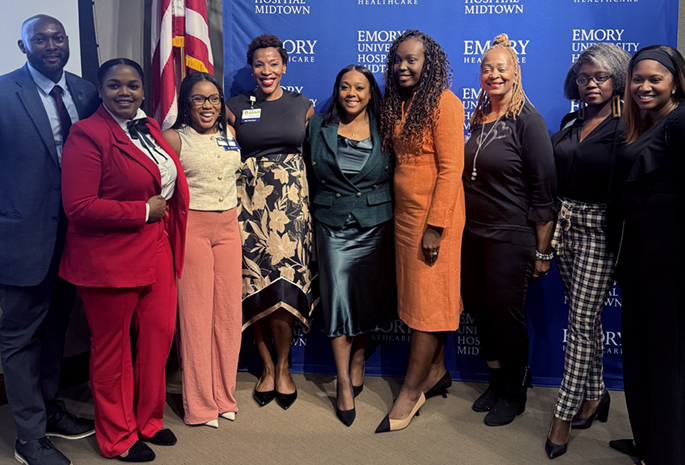What if the first step to saving lives is learning how to listen?
The central theme of Emory Healthcare’s 2025 Black Maternal Health Week panel, “Revitalizing Care: Improving Black Maternal Health Together,” was the necessity of listening to Black women’s voices.
Held at Glenn Auditorium of Emory University Hospital Midtown on April 14, the event brought together maternal health advocates, survivors, clinicians, doulas, lawmakers and hospital leadership representing Emory Healthcare and the local community. The purpose was to acknowledge progress and engage in a candid discussion about the current state of maternal health in Georgia.
Dr. Amaka Eneanya, MD, MPH, FASN, Emory Healthcare’s chief transformation officer, opened the conversation with the story of her own mother, who unexpectedly died from a pulmonary embolism after childbirth in 1992 in a middle-class Pennsylvania neighborhood.
“We weren’t talking about maternal mortality nearly as much then,” she said. “But we have to talk about it now.”
Over the next hour, Dr. Eneanya moderated a panel discussion that shared personal narratives, shifts in health care and policy, and hope for the future. Read on to learn some of the topics they covered.




